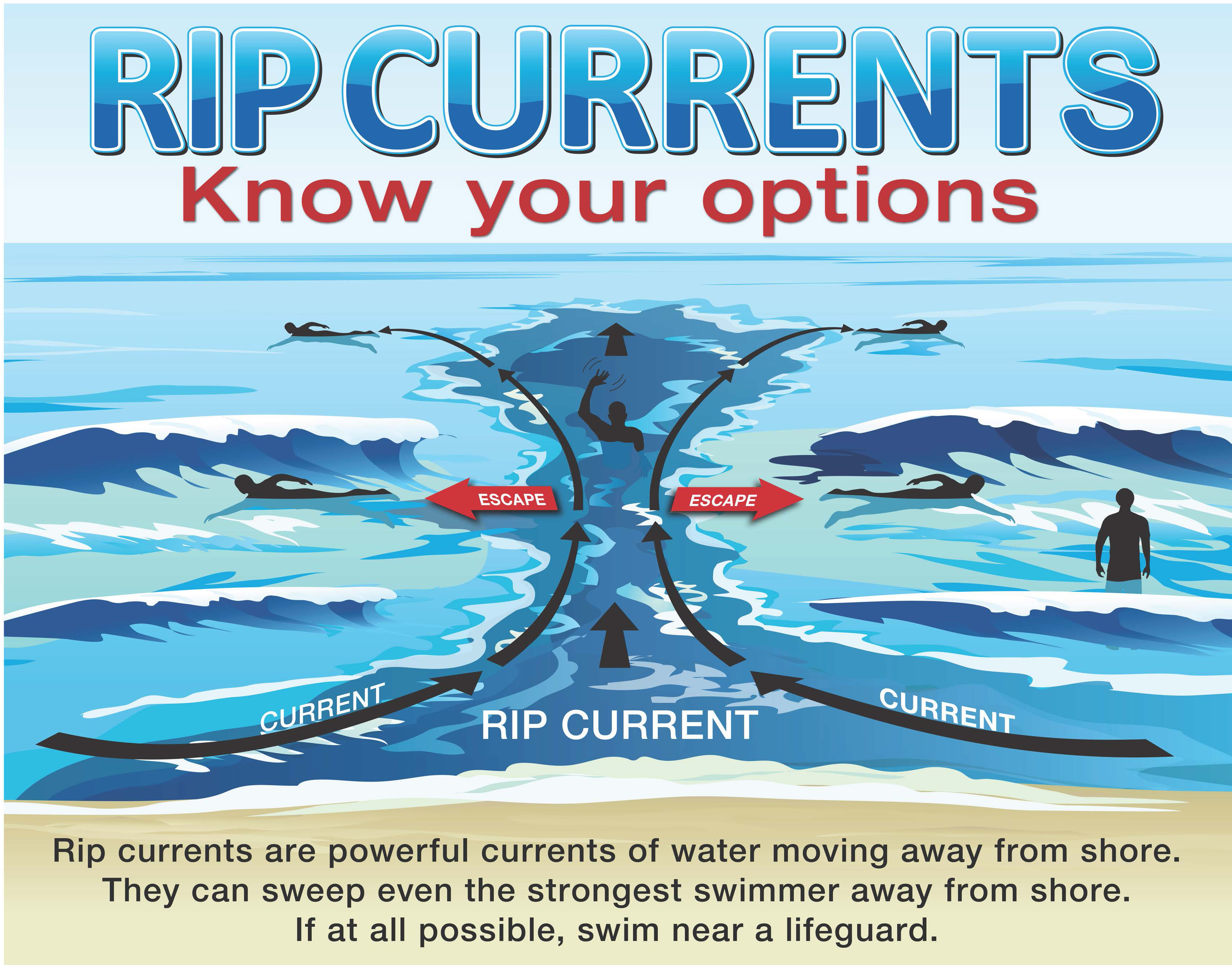Beach and Ocean Safety
Duval County has 15 miles of coastline with an abundance of public access to area beaches for residents and visitors to enjoy. While our beaches provide many beach-related activities to enjoy, such as surfing, swimming, fishing, and boating- it is important to remember to partake in these activities safely.Learning to swim is the best defense against drowning.
Never enter the water if you do not know how to swim or are not a strong ocean swimmer.
If you are not a strong ocean swimmer, take swim lessons. It is never too late to learn how to swim!





Where do rip currents form? Typically, rip currents form at breaks in the sandbar, and near structures such as jetties and piers.
What are some clues that a rip current may be present?
- No waves breaking in the area
- Unusual choppiness
- Discoloration of water
- A line of foam, seaweed, or debris moving away from the shore
- Don’t fight the current
- Swim with the current, then to shore
- If you can’t escape, float or tread water
- If you need help, call or yell for assistance

- Never swim alone
- Always swim in fron of a lifeguard
- Heed warnings from lifeguards
- Never underestimate the ocean's strength
- Never swim if lightning or a storm is approaching
- In case of emergency, call 911 if a lifeguard is not on duty. Do not attempt to rescue someone in distress
Try not to touch the site where you came in contact with the jellyfish. Consult the nearest lifeguard and they will treat you appropriately. Usually, treating the sting with a mixture of vinegar and saline water will alleviate the pain.
To protect yourself form the harmful sun rays, always choose sunscreen rated at least 15 SPF and/or clothing that covers your skin. Reapplying sunscreen regularly throughout the day is a must!
The sun can also dehydrate you quickly. Drink lots of water and avoid alcohol and carbonated beverages which contributed to dehydration.
Lifeguards treat bathers and beachgoers for heat exhaustion and heat stroke from time to time. If you feel ill, be sure to contact a Lifeguard immediately. If you don't see a Lifeguard, call 911.